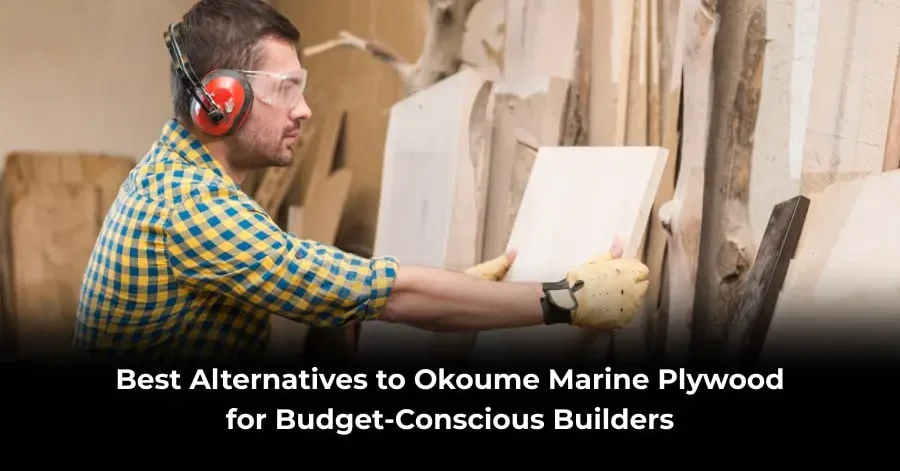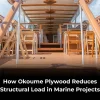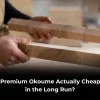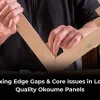When it comes to marine construction, boat building, and fine woodworking projects, Okoume marine plywood is considered one of the best materials in the industry. Lightweight, strong, and easy to work with, it’s often the first choice for professional builders and DIY enthusiasts alike. However, premium materials come at a premium price, and Okoume timber is no exception. For budget-conscious builders, finding reliable and cost-effective alternatives to Okoume plywood is essential without sacrificing performance and longevity.
This guide explores the best alternatives to Okoume marine plywood, highlighting their strengths, limitations, and best applications. By the end, you’ll know which material suits your project and how to make the most of your investment.
Why Okoume Marine Plywood Is So Popular
Before diving into alternatives, it’s important to understand why so many builders still swear by Okoume plywood.
- Lightweight but Strong – Okoume timber combines low density with surprising strength, making it ideal for boats and lightweight furniture where reducing load is essential.
- Moisture Resistance – Marine-grade Okoume plywood is built to withstand wet and humid conditions, making it reliable for shipbuilding and coastal construction.
- Superior Workability – Carpenters love Okoume because it’s easy to cut, shape, and sand without splintering.
- Premium Aesthetic – The fine, even texture and reddish-brown finish of Okoume timber give furniture and interiors a refined, elegant look.
The only drawback is cost—Okoume marine plywood is often more expensive than other types. This makes alternatives worth exploring for budget-focused projects.
Best Alternatives to Okoume Marine Plywood
1. Meranti Plywood
Meranti is one of the most common substitutes for Okoume plywood, particularly in Southeast Asia. While heavier, it offers excellent toughness and weather resistance.
Pros:
- Denser and stronger than Okoume marine plywood.
- Performs well in outdoor and marine environments.
- Widely stocked in most woodworking supplies stores.
Cons:
- Heavier than Okoume timber, not ideal for lightweight builds.
- Slightly more challenging to machine and finish due to density.
Best Use: Ideal for boat hulls, decking, cabinetry, and applications that prioritize durability over lightness.
Meranti is a great choice if you want a balance between strength and affordability. While it may not provide the same smooth finish as Okoume timber, it’s still a reliable material for marine and structural applications.
2. Douglas Fir Marine Plywood
Douglas Fir has been a trusted material in construction and boat building for decades. Its availability and strength make it a practical replacement for Okoume plywood.
Pros:
- More affordable than Okoume marine plywood.
- Readily available in most regions.
- Strong and impact-resistant.
Cons:
- Heavier and bulkier than Okoume.
- Surface tends to be rough, requiring extra sanding and finishing.
- Prone to surface checking if not sealed properly.
Best Use: Flooring, boat hulls, house construction, and subflooring where strength is more important than looks.
Douglas Fir is a good compromise when cost savings matter, but builders must be prepared to put in more finishing work to achieve a smooth result.
3. Birch Plywood
Birch is a versatile and attractive plywood option, often used in furniture-making. While not inherently marine-grade, treated Birch can be a decent substitute for Okoume plywood.
Pros:
- Fine grain and smooth surface make it perfect for veneers and finishes.
- Strong, stable, and resistant to warping.
- Cheaper compared to Okoume marine plywood.
Cons:
- Needs sealing or treatment for outdoor or marine use.
- Slightly heavier than Okoume timber.
Best Use: Furniture, cabinetry, decorative paneling, and interior applications where aesthetics matter.
Birch plywood is especially favored by DIYers who buy from woodworking supplies stores for home improvement and small-scale projects. Its clean finish makes it ideal for visible surfaces.
4. Poplar Plywood
For those who want something lightweight and affordable, Poplar plywood is often the go-to alternative.
Pros:
- Similar lightweight nature to Okoume plywood.
- Easy to cut, drill, and shape.
- More affordable for large projects.
Cons:
- Not naturally moisture-resistant.
- Requires sealing for outdoor or marine environments.
Best Use: DIY projects, light furniture, shelving, and indoor construction.
Poplar is a practical choice for hobbyists and beginner woodworkers who value affordability but don’t want to compromise entirely on performance.
5. Pine Plywood
One of the most widely available and cost-effective plywood options is Pine. It’s stocked in nearly every woodworking supplies store and appeals to budget-conscious builders.
Pros:
- Very affordable compared to Okoume plywood.
- Lightweight and versatile.
- Can be pressure-treated to improve durability.
Cons:
- More prone to warping and damage if not sealed.
- Lacks the refined appearance of Okoume timber.
Best Use: General construction, temporary structures, shelving, and projects where budget is the top priority.
While Pine doesn’t match the longevity of Okoume marine plywood, it’s a strong contender for short-term or low-budget builds.
6. Teak Plywood
Teak is famous for its durability and natural resistance to harsh marine environments. While generally considered premium, in some regions it may be priced competitively compared to Okoume timber.
Pros:
- Naturally resistant to moisture, insects, and decay.
- Extremely long-lasting and durable.
- Attractive golden-brown grain suitable for luxury finishes.
Cons:
- Expensive compared to Pine or Poplar.
- Heavier and harder to work with than Okoume plywood.
Best Use: Boat building, high-end furniture, decking, and decorative interiors.
Teak is the choice for builders who still want premium quality but are exploring alternatives to Okoume for specific marine or outdoor projects.
Choosing the Right Alternative
Not every alternative will fit all projects. To choose the right option, consider:
- Budget: Pine and Poplar are cheapest; Teak and Meranti are higher-end.
- Weight Needs: Okoume and Poplar are best for lightweight builds; Meranti and Douglas Fir are stronger but heavier.
- Moisture Exposure: Teak, Meranti, and Douglas Fir handle wet conditions well; Birch and Poplar need sealing.
- Aesthetics: Okoume, Birch, and Teak offer smoother finishes; Pine and Douglas Fir may require more work.
Builders must weigh these factors based on their project goals.
How to Extend the Life of Budget Alternatives
Even if you opt for a cheaper alternative, you can significantly improve its performance with proper care:
- Seal and Coat – Use epoxy, marine sealers, or high-quality varnish.
- Edge Protection – Pay special attention to sealing the edges of plywood sheets.
- Proper Storage – Store materials in dry areas before use to prevent pre-installation warping.
- Maintenance – Regularly check and reseal if used outdoors or in marine settings.
Following these steps ensures that even budget-friendly plywood can last for years, giving you better value for money.
Why Builders Still Prefer Okoume
Despite the viable alternatives, many professionals return to Okoume marine plywood because it offers a rare combination of benefits: lightweight handling, superior durability, and a refined surface finish. For boat building and luxury furniture, Okoume timber remains the benchmark.
For builders with tighter budgets, however, the alternatives discussed above provide solid solutions without overspending.
Also Read: 5 Stunning Ways to Use Okoume Plywood in Interior Design
About AEW Wood
AEW Wood is a global leader in supplying premium Okoume timber, Okoume plywood, and Okoume marine plywood directly from Gabon. With a strong commitment to sustainable forestry and FSC certification, AEW Wood serves industries ranging from marine construction to fine furniture manufacturing.
Whether you’re sourcing top-grade Okoume or exploring cost-effective timber solutions, AEW Wood ensures consistent quality, global delivery, and trusted expertise. For builders searching for a reliable woodworking supplies store partner, AEW Wood is the name you can count on.
Conclusion
For decades, Okoume marine plywood has been the gold standard in boat building, furniture making, and high-end woodworking. Its combination of lightness, durability, and beauty makes it hard to beat. However, not every project demands the premium price tag of Okoume timber.
From Meranti and Douglas Fir to Birch, Poplar, Pine, and Teak, there are several strong and affordable alternatives available at any woodworking supplies store. Each option comes with its own strengths—whether you need lightweight handling, strong resistance to moisture, or a fine decorative finish.
The key is to choose the right plywood based on your budget, project requirements, and environmental conditions. And remember: with proper sealing and care, even budget-friendly plywood can perform well for years.
If your project demands the unmatched balance of lightweight strength and premium finish, Okoume plywood remains the best choice—and when you need authentic, sustainably sourced Okoume timber, AEW Wood is here to deliver. With global supply capabilities and a trusted reputation, AEW Wood ensures you get the right material for every build, whether it’s marine-grade construction or fine furniture.
Frequently Asked Questions:
1. Why is Okoume marine plywood considered premium?
Because of its lightweight strength, moisture resistance, and refined finish, Okoume timber is valued worldwide, especially in marine and luxury woodworking industries.
2. What is the best budget alternative to Okoume plywood?
If cost is your biggest concern, Pine and Poplar plywood are the most affordable choices, widely available in woodworking supplies stores.
3. Can Douglas Fir plywood be used in boats?
Yes, Douglas Fir marine plywood is strong and durable enough for boat building, but it requires sealing to prevent surface checking.
4. Which plywood alternative has the most attractive finish?
Teak and Birch plywood are excellent for projects where aesthetics are important, offering smooth grains and beautiful finishes.
5. Why choose AEW Wood for Okoume timber?
AEW Wood provides sustainably sourced, FSC-certified Okoume plywood and veneers, ensuring premium quality and reliable supply for global builders.






